Jesus came to bring both truth and love. Has the Church followed its master when it comes to the increasingly tense and complex subject of British Islam?
Israel’s response to Hamas’ October 7 attack has ignited an inferno in the tinderbox of Palestinian sympathy. Enormous protests occur most weekends in the UK with strong Muslim support. Opinions about the war are deeply polarised across society, but as many as 85 per cent of Muslim voters say that a political leader’s stance on Israel-Gaza will influence their vote, according to a recent Survation poll.
It is not just the ballot box that concerns British politicians, but the potential for violence. Tory MP Sir David Amess was murdered in 2021 by a fanatic opposed to the politician’s vote to bomb Syria. The police said the motivation was “linked to Islamic extremism”. Labour MP Stephen Timms was stabbed in 2010 by a woman in revenge for voting for the Iraq war. The woman said she was inspired by radical Islamist preaching. Conservative MP Mike Freer recently announced he will leave his role at the next election following threats from extremist Muslims.
There was a furore in Parliament in February when Lindsay Hoyle, the speaker of the house, gave in to demands for a compromise vote on Gaza, blaming his fear that MPs who abstained would be at risk. “The details of the things that have been brought to me are absolutely frightening,” Hoyle told the Commons the following day. “I never, ever want to go through a situation where I pick up a phone and find a friend of whatever side has been murdered by terrorists.”
It’s possible to maintain good relationships with our Muslim friends while at the same time talking about theological differences with an aim to preaching the gospel
Imtiaz Khan
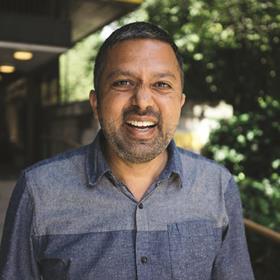
The same day, a Labour constituency office in Glasgow was stormed by pro-Palestinian protestors who MSP Paul Sweeney said were: “terrifying and threatening our staff…the Speaker is right to try to calm this down.”
Taking to X (formerly known as Twitter), Conservative MP Robert Jenrick added that it was “a dark day for our democracy” and blamed a “pattern of Islamist extremists intimidating those they disagree with, backed by the prospect of violence”. Former home secretary Suella Braverman MP wrote in the Daily Telegraph: “Islamists are bullying Britain into submission”, while Ayaan Hirsi Ali, the Somalian Muslim turned atheist who recently became a Christian, said: “we are starting to witness what happens when Islamism is given licence to flourish” in an article for online magazine UnHerd.
There are many who disagree. “This kind of rhetoric – which characterises pro-Palestine protesters like me as shady yet powerful ‘Islamists’ – only serves to fuel further hatred against Muslims”, said journalist Tasnim Nazeer in The Guardian. Tory peer Baroness Warsi accused her own party of Islamophobia. “I swear the desperate and divisive bull**** that some of my colleagues spout is embarrassing”, she wrote on X. “That they are prepared to divide, ratchet up hate and set our country alight just for political posturing is shocking and dangerous.”
In an open letter, more than 50 survivors of Islamist terrorist attacks wrote: “While Islamist-inspired extremism is our country’s most pressing terror threat, it is not our only one – and responding to it by feeding far-right extremism, dividing our communities and exaggerating the risk will feed a cycle of extremism that will put more people at risk.”
It seems that the conflict in Gaza has exposed the tension, division and fear that surrounds Islam – or ‘Islamism’ (for definitions, see box) in the UK. Christians have engaged with British Muslims ever since significant immigration began in the 1960s. Can the Church’s response help to bring light to the political situation? Or do we have much to learn, too?
Definitions
Islamism
Islamism, as defined by government advisor Sara Khan, is political Islam that wants to expand and impose Sharia law. It usually has much more illiberal beliefs than a liberal democracy. It is not necessarily violent, though it is often defined by or overlaps with ‘militant’ or ‘extremist’ Islam.
Some Christians believe that all Islam is inherently political or Islamist, and moderate versions of it are a historical aberration. But Sara Khan says her liberal version of Islam has roots going back centuries. She acknowledges, however, that many Islamists believe their interpretation of Islam is the authentic and historic one, and some Muslims see the two as the same.
Extremism
Legally it has been difficult to pin down what exactly an ‘extremist’ is, beyond the obvious definition of those who clearly incite or commit acts of violence. Because the current definition can’t restrict groups in the UK that the government is concerned about, communities secretary Michael Gove’s new definition seeks to widen the net. It now says: “Extremism is the promotion or advancement of an ideology based on violence, hatred or intolerance” that aims to remove democracy or the freedoms of others, or help to create an environment where this is possible.
But Christians have pointed out that this could include people who oppose abortion or extreme transgender ideology, too. Some of the characteristics that a recent report used to define Islamism are shared by many evangelical churches, for example: “Commanding that (their interpretation of) the faith is placed at the centre of an individual’s identity and must govern all social and political decision-making”.
Meeting at the table
At one end of the spectrum of Christian engagement with Islam is an ‘interfaith’ emphasis on non-confrontational welcome, friendship, dialogue, tolerance and respect. In most cities, there are groups where all faiths are invited to the table. The Inter Faith Network’s stated goal (IFN) is to raise awareness of different religions, emphasise common ground and improve relations between them.
Evangelism is often avoided. A ‘toolkit’ for interfaith work published by the IFN and the Near Neighbours Network, run by the Church Urban Fund, advises that a project’s aim should be: “to work together for local benefit; not to convert those you are engaging with or to argue for the merits of a particular faith.”
This suits Christians who believe all paths can lead to God. “I’m very content as a priest to claim [salvation] for myself and the Christian community through Jesus Christ,” said Rev Canon Hilary Barber, vicar of Halifax Minster and co-chair of the IFN, though he spoke to Premier Christianity in a personal capacity. “I also have a profound respect for people with a different route to salvation. It doesn’t mean theirs is wrong. It is just different.”
He says he has sought genuine friendship with Muslims in his own life and in his ministry: “in order to try and make the world a better place.
“We have so much more to share in common than we disagree with…prayer and spirituality, a desire to live peacefully, care and stewardship of the earth’s resources.”
Some Christians advocate for gently sharing the faith within interfaith work. For example, Rev Richard Sudworth, advisor to the Archbishop of Canterbury on interfaith issues, said on his appointment: “More than ever, a Christian witness is needed that can foster the common good across religious traditions as well as prayerfully sharing the claims of our faith.”
Many faithful Christian missionaries work under the radar to share the gospel with Muslims in the UK, often sharing their lives and talking about Christ. Whether evangelising or not, the aim of the interfaith approach is kindness, gentleness, building relationships and avoidance of conflict or the criticism of Islam itself.
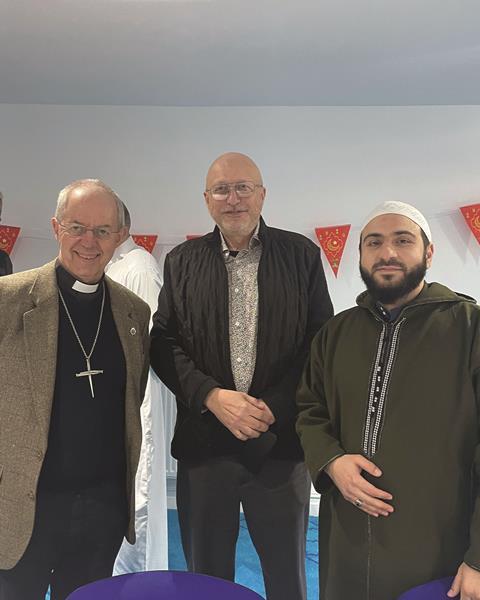
Dodging the problem?
However, some believe that interfaith work avoids important conversations, not least over Islamic beliefs. “It’s possible to maintain good relationships with our Muslim friends and neighbours while, at the same time, talk about theological differences with an aim to preach the gospel,” said Imtiaz Khan, Islam training director at London City Mission, who hosted a Christian-Muslim discussion forum for ten years in east London. “Most Muslims who attended our discussions respected me for being committed to my Christian faith and passionate to share it with others.”
Monsignor Michael Nazir-Ali, the former Anglican bishop who recently became a Catholic, thinks dialogue about political principles is also important. He told Premier Christianity that he doesn’t believe in “kissy kissy dialogue” of the kind where “everyone pats each other on the back and says how wonderful they are”. Instead, he advocates for discussing: “particular issues such as freedom of belief, freedom of speech, which gives the possibility of people changing their beliefs, and other important matters.”
These are just some of the areas where Islamists may disagree with British values. However, when venturing into debating Islamism, extremism or even Islam, we enter choppy waters. Some Christians are uncomfortable with making any kind of criticism of other faiths. “I haven’t experienced anything that would lead me to fear Islam in any way,” said Rev Barber. “When we talk about radicalisation, we can’t only talk about Islam. By focusing on Islam, that is playing into a kind of Westernised, European media that constantly criticises Islam all the time.”
Hatred of Islam or Muslims?
Some activists believe that criticism of Islam is inherently bigoted or racist, and call it “Islamophobia”. This was the conclusion drawn by the All Party Parliamentary Group (APPG) on British Muslims, and was widely adopted by many public bodies, including the Labour Party, who may use it to make new legislation that would restrict criticism of Islam. Their justification is violence directed at Muslims, such as the two women convicted of torturing a convert to Islam in Guisborough, North Yorkshire, in 2018.
The APPG report said “classic Islamophobia” includes common criticisms of Islam that fuel hatred: “Muhammed being a paedophile, claims of Muslims spreading Islam by the sword or subjugating minority groups under their rule.” As historian Tom Holland pointed out on X, a ban would make it illegal to discuss a lot of Islamic history. “Criticism of Islam is not the same as criticism of Muslims”, wrote Christian Concern’s Tim Dieppe, in a recent report for the Free Speech Union. “The two should be differentiated. Striking a believer, for example, is a crime; debating her beliefs is a right.”
MPs critical of Islamism agree that we need to distinguish legitimate criticism of Islam – or any religion – from unjustified prejudice, discrimination and hatred towards Muslims as people. They argue the word “anti-Muslim hatred” should be used for the latter instead.
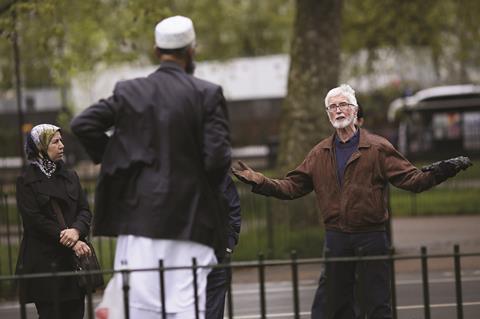
Violence and Islam
It is not just Christians who believe Islamism and its connection to violence need to be examined. Some Muslims leave their religion or convert to Christianity when they discover violent history or commands within Islamic theology, such as the late Nabeel Qureshi. He had a very positive experience of growing up as a Muslim in the US, yet was horrified when he discovered that Islamic founders said it was OK to have sex slaves and other brutal acts. While he emphasised that most modern Muslims reject violent jihad, he came to believe that Islam must be challenged, too.
Sara Khan is a government advisor who advocates for a liberal and compassionate interpretation of Islam. But in her book, The Battle for British Islam: Reclaiming Muslim identity from extremism (Saqi Books) she wrote that her view of the faith is losing ground to extremism in the UK. She warns that many liberal people are afraid to challenge radicals because they are afraid of being Islamophobic. But she argues this is because they believe that Islamism is the same thing as Islam – though she acknowledges that many Muslims believe this, too. “In this highly divisive environment, what can be agreed on is that the word ‘Islamic’ clearly means very different things to Muslims across the world”, she wrote. “I still meet many young Muslims who think that Islamism is authentic Islam.”
The polemic approach
This is why, at the other end of the spectrum of the Church’s response to Islam, some apologists say we must heartily criticise Islamism both theologically and politically. They argue that fearlessly telling the truth is an important part of love. One of the best known in the UK is the American missionary Jay Smith, who spent 25 years challenging the radical Muslims at Speakers’ Corner in London’s Hyde Park, though he has now moved back to the US.
This kind of rhetoric – which characterises pro-Palestine protesters like me as shady yet powerful ‘Islamists’ – only serves to fuel further hatred against Muslims
Tasnim Nazeer
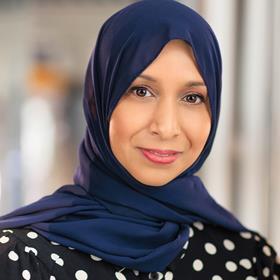
For Smith, the biblical model is to challenge verbally. “The best example is Paul,” he told Premier Christianity. “He knew his scripture well and in every city he would go up to the Pharisees and confront them. That’s what we are not doing with Islam. Nowhere did Paul first develop a relationship with them or ‘find people of peace’.”
Smith has robustly criticised Islam and its prophet using historical sources. Now, he even questions its historicity. Many Christians have objected to his feisty challenges, believing them to be unloving or unChrist-like: he says a senior Church of England figure even asked him to stop using polemics. But if Islamism – or militant Islam – is as much of a threat as some liberal Muslims and politicians say it is, shouldn’t the Church be challenging, or at least debating, it?
The polemical strategy has its costs. Smith has been threatened, while Hatun Tash, a convert from Islam who worked with Smith, was stabbed. A man was recently convicted of plotting to shoot her after viewing “extremist Islamic material” and “YouTube videos primarily concerned with firearms and Jihad”, according to the Crown Prosecution Service. Dr David Wood, a Christian American YouTuber who makes videos that deliberately criticise and insult Islam with the aim of encouraging them to apostatise, regularly receives death threats.
Smith believes that the real reason many avoid debating Islam is the reaction of extremists. “The reason for being ‘nice’ is fear,” Smith said. “Once you let fear control you, you end up with the ‘grace method’ or irenics, which means peace.
When we talk about radicalisation, we can’t only talk about Islam.
Rev Canon Hilary Barber
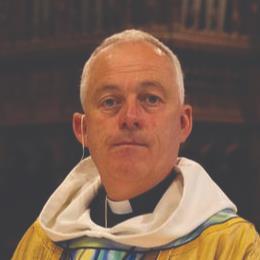
“It says you must not confront, but come alongside. They are trying to be Christ-like, but it is a very European Christ, modelled on us and our personality and how we have become out of fear. With moderate Muslims the fear might be to offend or create conflict – but there is fear of encountering extremists, too.”
Political challenge
Smith believes that when Islamism is not challenged, it becomes more powerful. “[Radical Muslims] will perceive timidity and politeness as a weakness on our part, and be emboldened to then gain as much ground politically and socially as they can, as in Britain it has proven to be a formula which works,” says Smith.
We need to distinguish legitimate criticism of Islam from unjustified prejudice and discrimination towards Muslims
Fear can powerfully influence behaviour. Which brings us back to recent political events. Even if most pro-Palestinian protesters have peaceful intentions, the threat of violence from radicals has influenced Parliament, and the resulting row has alienated many Muslims who fear backlash against their community and the rise of the far right. Yet another kind of fear highlighted in Dieppe’s report is that many are afraid of criticising Islam for fear of being branded racist and “Islamophobic”; still others worry about causing offence. Perhaps this is why Most Rev Justin Welby, Archbishop of Canterbury, controversially chose not to name Islamists as the culprits when expressing shock and sadness at another group of Nigerian Christian children who were recently abducted in his post on X. Yet fear can stop us building honest, positive relationships, as well as debating Islam or Islamism.
Criticism of Islam is not the same as criticism of Muslims
Tim Dieppe

Somehow, Christians must learn to bring both truth and love, as Jesus did. “Fear is not a solution, as it will only alienate those we hope to deter from violence and it will serve as positive reinforcement to those who want to use terror”, said Qureshi in his book, Answering Jihad: A better way forward (Zondervan). “My suggestion is that we engage Muslims proactively with love and friendship while simultaneously acknowledging the truth about Islam.”
Qureshi and many other missional Christians argued that the best of the extremes of interfaith friendship and robust polemics can be brought together. They believe it is possible to courageously seek truth as well as love without prejudice.
In every city Paul would go up to the Pharisees and confront them. That’s what we are not doing with Islam
Jay Smith
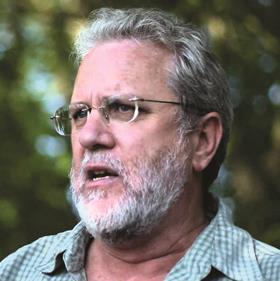
Christians are called to love all, not just innocent Muslims who have been unfairly branded as terrorists or mistreated, but even those who are radicalised and wish us harm. If we are to bear the name of Christ, we must follow his clear teaching and his cruciform example of loving our enemies. Dodging the real threat of radical Islam and avoiding conflict might make it easier to love our Muslim neighbour, but searching for the truth should be a Christian goal, alongside love and welcome. Acknowledging the problems within British Islam and debating the religious motivations of extremism requires courage and sensitivity.
It is possible to courageously seek truth as well as love without prejudice
There is a complicated intersection: extremists who threaten violence inspired by the Koran and Islamic history, well-meaning Muslims who experience only good in their religion and think they are judged unfairly, and racism directed at Muslim communities. These entwined issues have formed a very tricky knot to untangle.
As with many of the enormous challenges our society faces, the path to a solution is precarious. Christians need to balance love with truth, compassion with wisdom, tolerance of difference with the courage to criticise Islam when it is right to do so – and be willing to face the consequences. Ignoring the problem no longer seems an option.






































2 Readers' comments